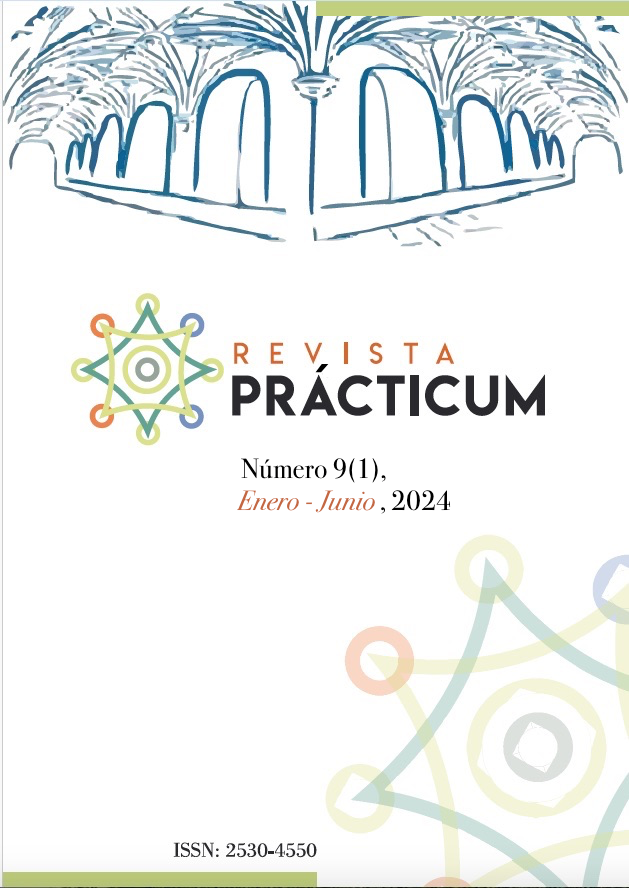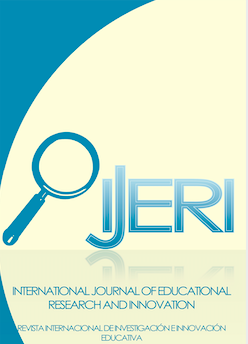Design of the professional internship course: Bachelor's degrees in Economics, Business Administration, and Tourism (UNED)
DOI:
https://doi.org/10.24310/rep.9.1.2024.17653Keywords:
Higher Education, Youth Employment, Active Learning, competences workAbstract
The external internship subject at the Faculty of Economics and Business Sciences of UNED allows students to gain work experience and essential skills, aligning with the European Higher Education Area and its focus on employability. The situated learning approach, based on immersion in communities of practice, enables students to learn from experts and contribute to business knowledge. The objectives of the course include developing an effective methodology that combines immersion in the professional context with activities proposed by the teachers. It aims to ensure that students not only understand the structure and operations of the organization but also comprehend its culture, values, and internal dynamics. Another objective is to equip students with the skills to create their curriculum vitae and present themselves effectively to potential employers. This skill is essential for standing out in the job search process.
Downloads
Metrics
References
Clancey, W. J. (1995, December). A tutorial on situated learning. In Proceedings of the international conference on computers and education (Taiwan) (pp. 49-70).
González-Davies, M., & Enríquez-Raído, V. (2016). Situated learning in translator and interpreter training: bridging research and good practice. The Interpreter and Translator Trainer, 10(1), 1-11.
Dickfos, J., Cameron, C., & Hodgson, C. (2014). Blended learning: making an impact on assessment and
self-reflection in accounting education. Education+ Training.
Lave, J., & Wenger, E. (1991). Situated learning: Legitimate peripheral participation. Cambridge university press.
McLellan, H. (1996). Situated learning perspectives. Educational Technology.
Riveros, A., Newton, P., & Burgess, D. (2012). A situated account of teacher agency and learning: critical reflections on professional learning communities. Canadian journal of education, 35(1), 202-216.
Real Decreto 592/2014, de 11 de julio, por el que se regulan las prácticas académicas externas de los estudiantes universitarios. (2014). Boletín Oficial del Estado, número 171, de 12 de julio de 2014.
Sentance, S., & Humphreys, S. (2018). Understanding professional learning for Computing teachers from the perspective of situated learning. Computer Science Education, 28(4), 345-370.
Wenger, E. (1998). Communities of practice: Learning, meaning, and identity. Cambridge, UK: Cambridge University Press.
O’Brien, B. C., & Battista, A. (2020). Situated learning theory in health professions education research: a scoping review. Advances in Health Sciences Education, 25, 483-509.
Wenger, E. C., & Snyder, W. M. (2000). Communities of practice: the organizational frontier. Harvard Business Review,78(1), 139–145.
Wenger, E., McDermott, R. A., & Snyder, W. (2002). Cultivating communities of practice. Boston, MA: Harvard Business School Press.
Wenger-Trayner, E., Fenton-O’Creevy, M., Hutchinson, S., Kubiak, C., & Wenger-Trayner, B. (2015). Learning in landscapes of practice: Boundaries, identity, and knowledgeability in practice-based learning. New York, NY: Routledge.
Downloads
Published
How to Cite
Issue
Section
License
Copyright (c) 2024 Cristina Sánchez Figueroa (Autor/a)

This work is licensed under a Creative Commons Attribution-NonCommercial-ShareAlike 4.0 International License.
Acceptance of the work implies that the author grants Revista Prácticum the exclusive rights to reproduce, distribute and sell his or her work worldwide, both in digital and paper formats, CD-ROM, etc.
Likewise, the authors shall grant Revista Prácticum the rights of dissemination, public communication on the Internet and IT networks, data buses, as well as any other portals or electronic devices for online consultation of its contents and extracts, under the conditions of the portal, repositories or databases where the work is stored.
Revista Prácticum allows authors to publish and disseminate their articles and works on their personal websites, research teams, institutional repositories and scientific databases. All this in accordance with the Creative Commons 4.0 License









8.png)








